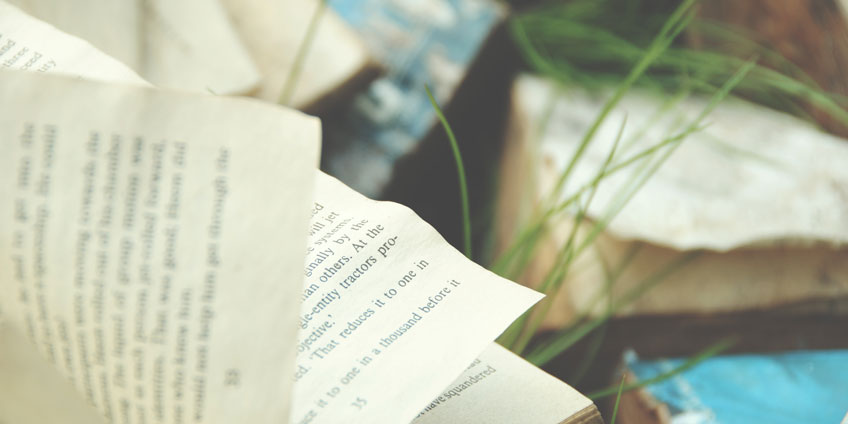
If you are reading this article, most likely the time has come. The time has come for you to do one of the most hated assignments in history – write a book report. But don’t despair, you are not the only one. This fate befalls millions of students every year, so that we even decided to prepare a comprehensive guide for you, and your friend, and Jake from English 101.
“I want to write my report, but I have no idea how to go about it,” – if that’s you right now, we’ve got some good news. Writing a book report is simple and fun! Once you read this article, you will see why.
Preparation Stage
So, you’ve got this report to write, and there is no getting around it. Do not get panicky. Make yourself a nice cup of tea. Sit down in a comfortable chair. Exhale. Now it’s time to get down to business.
Understand the assignment
Your teacher is likely to provide you with a list of instructions for your report. Do not just skim over them. Read carefully and make sure you understand. If you don’t, do not be afraid to ask your teacher. Ask even if you are afraid. Fortune favors the brave and all that jazz.
Your teacher may sometimes request something not typical of a book report. For instance, they may want you to critique the author’s style, which is the domain of a book review. They may want you to cite every quotation, which is quite tiresome, honestly. But it’s not like you’ve got a choice.
Get the book
Well, duh – you may think. Getting a book is an obvious step, but it’s not all that straightforward. There can actually be multiple editions of the same book, and you need to know which one to get. It is usually mentioned in the instructions, but if it’s not, do not forget to ask your teacher about it.
Speaking about the book itself, clarify with your teacher whether you can choose it on your own. It will be much more fun for you to write a report on the story you already like rather than the one which was imposed on you.
Check the supplies
Pens and pencils, highlighters and sticky notes – they all must be within reach at any time. Reading a book for pleasure is different from reading a book for a report. In the latter case, you must act like a detective, tracing the main theme and collecting the evidence to support it. You must be ready to stop every 5 minutes to pin down your thoughts and observations.
Find a reading spot
It can be your room or a local library, whichever works best to keep you focused. It must be cozy, quiet and well-lit.
Choose the time
Reading can be pretty time-consuming, so you need to plan accordingly. You do not want to stay up the night before the deadline, trying to produce a half-baked version of what could have been a great book report. So, do not be lazy and calculate the approximate time it’ll take you to read and write. Then open your calendar and choose the hours to do it. Give yourself a couple days leeway. This way if you overestimated your reading speed, you will still be able to finish the report.
Now that you are equipped for the challenge, it’s time to learn how to get the most out of your reading.
How to Make Reading Useful?
Before delving into the fictional (or non-fictional) world, you should decide upon the reading techniques which will be most beneficial to you. Here are some tips we encourage our writers to use.
Know What Matters
What is a book report? You should have an answer to this question before you start reading. A book report is first of all a summary. That is why while reading you should pay attention to:
- Setting and its symbolism.
- Character descriptions, their actions and motivations.
- Events that drive the plot.
The book report format is descriptive rather than analytical. You can only provide your personal opinion at the end, in the conclusion paragraph. Although some teachers move away from this format and encourage more analysis, a report is still widely different from a review.
Space Out
Do not read the book in one sitting. It may be enjoyable, but it is counterproductive to your understanding. Think of it like eating a salad full of different ingredients. When you eat slowly, you get to explore the taste of each and every bite. Same with reading. When you read at your own pace, you can get to the bottom of each and every theme, motive, symbol.
Take Breaks
It’s good to stretch your attention span from time to time. But if you find yourself rereading the same sentence over and over, it’s time to take a break. Go for a walk, get some tea or chat with your friend. Such breaks will not only make you more attentive – they will also boost your creativity.
Take Notes

Remember the part about supplies? Taking notes is a must if you want your reading to be effective. Here are the note-taking techniques we find most convenient:
- Mapping (if you have no idea what the book is going to be about, just put the title in the center and connect it with the ideas you discover as you read. It’s a feasible method at the start, but as you are getting a better idea of the book’s content, it’s better to switch to a different one).
- Outlining (saw an interesting character description? Use outlining to make note of it in your copybook. Outlining is basically what I am doing right now – making bullet points to an overarching concept).
- Boxing (you can put the interrelated notes in boxes. Let’s say you are reading about the English Civil War. Have a box for the Battle of Nasby, a box for the Battle of Edgehill, etc. This way it’ll be easier for you to find the necessary information).
This is not the exhaustive list of all note-taking techniques. However, even if you use just these, your reading will be much more productive.
Digest Information
Do not just pen down everything you read. Be selective when it comes to annotations. Ask yourself how you can use this or that info in your book report. If you can’t find the answer, perhaps, there is no need to smirch the paper.
Be Ready
Sometimes awesome creative ideas strike you when you least expect them. You shouldn’t just assume that you will remember them later – it never happens, believe us. You should immediately reach for your pen and notebook and write them down.
You should control your reading, but at the same time, you should let it inspire you. Only then will you be able to produce a report that is interesting and original.
So, let’s say you finished the book. Now you are stuck with a bunch of notes, a looming deadline and no desire to do anything whatsoever. But you’ve got to break the writer’s block. You’ve got to complete that book report at all costs. If you think so, here are some writing tips from our experts.
Writing a Book Report in Stages

There are 3 main stages: writing, revision and editing. Sometimes you may need to do rewriting if the first attempt was not very successful. So, read further and answer your “How to do a book report right?” question once and for all.
Writing
On this stage you work a lot with your notes. This is your evidence that you will use to create a compelling and professional book report.
Try to start your introduction with a fun fact or a quotation from the book. Normally, after reading, you will sense the thematic statement, but you still need to formulate it. Do not forget to include a brief summary of the plot as well as the book’s title and the author’s name.
In the body paragraphs, you should single out at least three ideas which underpin the thesis statement. Each idea needs to be supported by 2-3 examples (events, character traits) from the book. There should also be one quotation per paragraph – this is how you show your teacher that you actually did the reading.
Special attention should be paid to the main characters. You should mention their names, distinct traits and actions. The book report format doesn’t presuppose a character critique, but you can at least specify whether they were static or dynamic, flat or three-dimensional, protagonists or antagonists, etc.
In the conclusion, you reiterate the book’s summary and deliver your verdict. Did you like the book? Did you feel like something was amiss? Were there any plot holes? Be honest in your opinion, do not let the writer’s authority dictate it. There are no right or wrong thoughts here.
Revision
How to make a book report which presents a logical and well-structured argument? – this is the kind of question you are answering on this stage. You should look at the big picture, not at the individual words or phrases. How do ideas flow and connect with each other? Do they help explain the theme or are they redundant?
You should not be afraid to remove whole paragraphs if they do not relate to the thesis statement. It’s a painful process, but it’s necessary if you are going for quality and not quantity.
Editing
On this stage, you are analyzing the parts rather than the whole. Typos, stylistic errors, commas – all those things demand your attention if you do not want to annoy your teacher too much.
Farewell Guidelines
Hopefully, now you understand how to write a book report that will skyrocket your academic reputation. We would just like to stress the importance of listening to your teacher. Sometimes, your answer to “what is a book report?” question is different from what your teacher believes it should be.
And please do not be lazy and read. A book report forms your mindset, as you think deeply about the characters and their motivations. It can help you become not just a better student, but also a better, more well-rounded personality. So, no more hating the English class. Reading is fun, and writing is easy when you know how to do it right. And now you do!